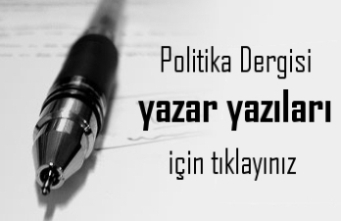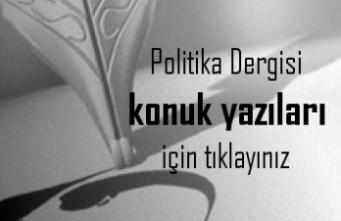Bu Yazılar da İlginizi Çekebilir!
- Two Politically Equal and Sovereign Peoples Live on Cyprus
- Other Face of Cyprus Problem
- Cyprus Plans that were Approved by the Greek Cypriots
- Messages to Greek Cypriots from President Erdoğan
- Our enemy is Ankara, not the northern Cypriot Turks’
- The Greek Tell-a-Tale
- No Hope From Europe
- Thousands of Greek Settlers in the Island
- Unspoilt Yet: North Cyprus
- Mr. Burrowes should also inspect the Mosques
- Quo Vadis Europe?
- I Admire Our British Citizens
- KKTC Cumhurbaşkanı´nın Bilinmeyen Danışmanı
- Bir Cesur Yürek
- The Beginning of the 20. Century, Azerbaijan’s Political and Literary Status
The Old Horse Of The UN: Cyprus
 The old horse of the UN Security Council and the secretaries-general of the UN --from U Thant to Ban Ki Moon -- is definitely the Cyprus problem. The partnership of the Republic of Cyprus was established with two communities: the Greeks and Turks of the island, by way of the 1960 Treaty of Establishment of the Republic of Cyprus.
The old horse of the UN Security Council and the secretaries-general of the UN --from U Thant to Ban Ki Moon -- is definitely the Cyprus problem. The partnership of the Republic of Cyprus was established with two communities: the Greeks and Turks of the island, by way of the 1960 Treaty of Establishment of the Republic of Cyprus.
However, it would later be destroyed in 1963-64 by Archbishop Makarios III and his criminal crew -- one of which was the present pre-tender to the post of “President of Cyprus,” Mr. Christofias.
This is a glaring fact known to all concerned parties but they choose to ignore it for their self-interests.
The political decision of the big Western powers of that era was to recognize Makarios III and his government as if it was composed of 100 percent Greek Cypriots (in lieu of a partnership government of 70 percent Greek Cypriots and 30 percent Turkish Cypriots), right after the ethnic cleansing of the Turkish Cypriots by the Greek Cypriots and the government of Cyprus, which was then composed solely of Greek Cypriots after the Turkish Cypriots were forced out of their government offices.
Greek Cypriot leaders defied the compromising 1960 agreement and resorted to armed force in order to destroy the “partnership Re-public,” thus getting rid of the “sui generis” provisions which did not allow the Cyprus Republic to destroy itself and unite with Greece or Turkey.
Despite this, the Greek Cypriot leadership was treated as if it had successfully achieved its objectives while Turkish Cypriots were, at great human cost, resisting this unorthodox, illegal attempt in order to protect the bi-national partnership quality of Cyprus.
The Soviets, leaders of the eastern block of that era, joined in on this fallacy hoping that Makarios III would invite the Soviets to Cyprus, committing a grave injustice against the Turkish Cypriot partner whose constitutional rights were violated while as individuals, Turkish Cypriots lived under fear of genocide until Turkey’s arrival in 1974.
Archbishop Makarios III, “The president of Cyprus” who had engineered the whole tragedy back in 1963, had welcomed UN Resolution 186 as a victory.
He stated: (Cyprus Mail, March 5, 1964) “We have received a resolution in the first phase of our struggle in the international field. Turkey cannot, in the future, threaten intervention in Cyprus invoking the Treaty of Guarantee.”
He then fortified this statement in Athens -- on the anniversary of 1950 illegal Enosis [annexation to Greece plebiscite in Cyprus -- saying that, “Today the Zurich and London Agreements (which established the republic of which he was still treated as its president) stand abrogated and buried. Neither Turkey nor any other power can breathe life into them again.”
It is a pity and a shame that even following 1974, the big powers refused to have a second look at Cyprus and at the Aecretary General’s mandate in order to pave the way for a fair and permanent solution.
This would necessitate putting a proper diagnosis on “the Cyprus problem.” Suggested remedies by all concerned parties and previously submitted plans by the Secretary-Generals were obviously not helping to reach a settlement and yet, as if blindfolded to the realities of Cyprus and to the policies of the two parties on the island, they all insisted in treating one of the parties -- the one which had created the problem in order to achieve Enosis, which the 1960 International Agreements had outlawed -- as “the legitimate government of Cyprus.”
This attitude of not treating both sides equally; this deliberate error of treating the Greek Cypriot side as the legitimate government in contravention of the rule of law, is an undeniable fact that has so far prevented a settlement in the “old horse”: the Cyprus problem.
Prof. Dr. Ata ATUN
- Ata ATUN içeriği
- 13964 okunma










Yorumlar
Yeni yorum gönder